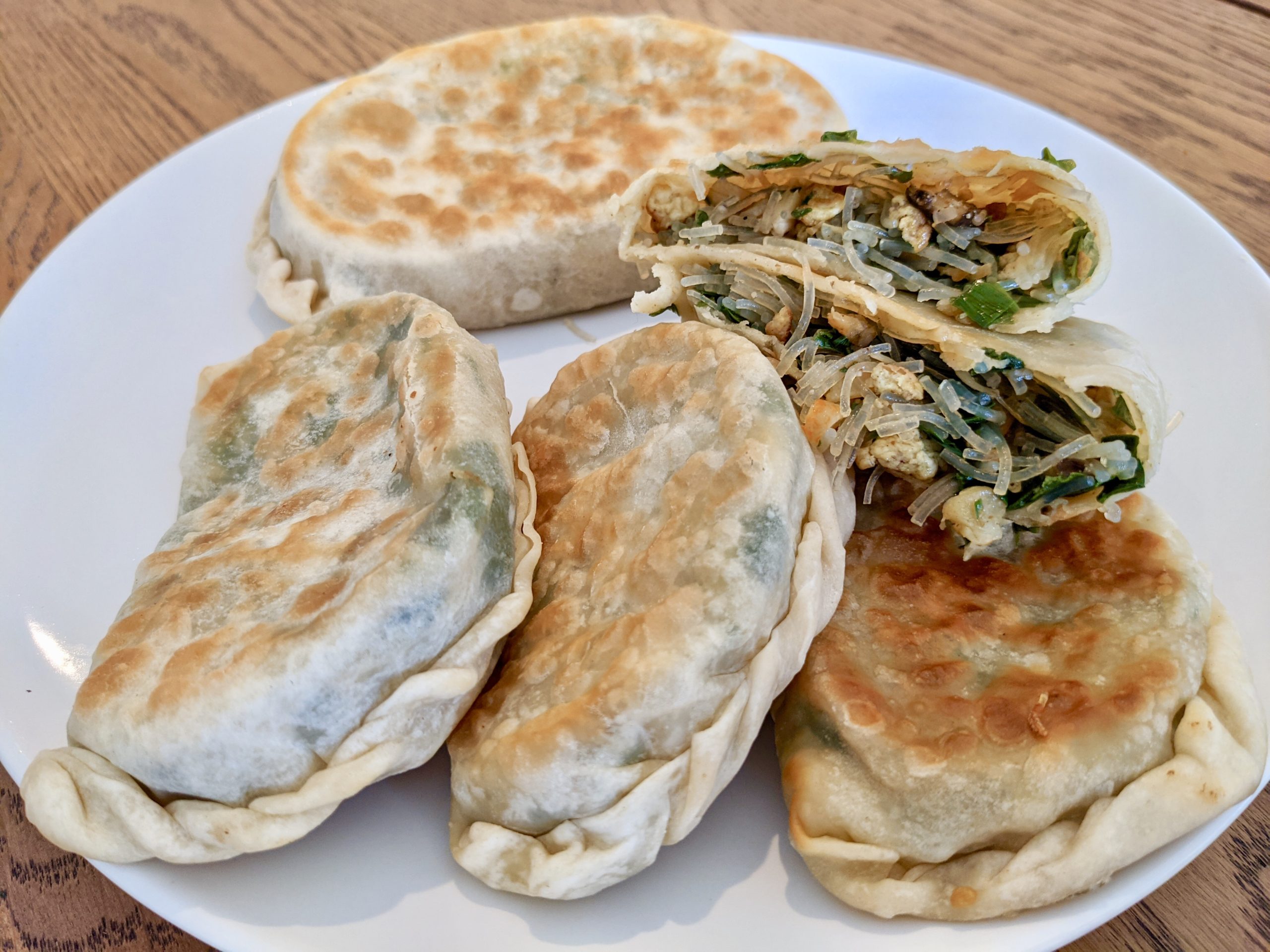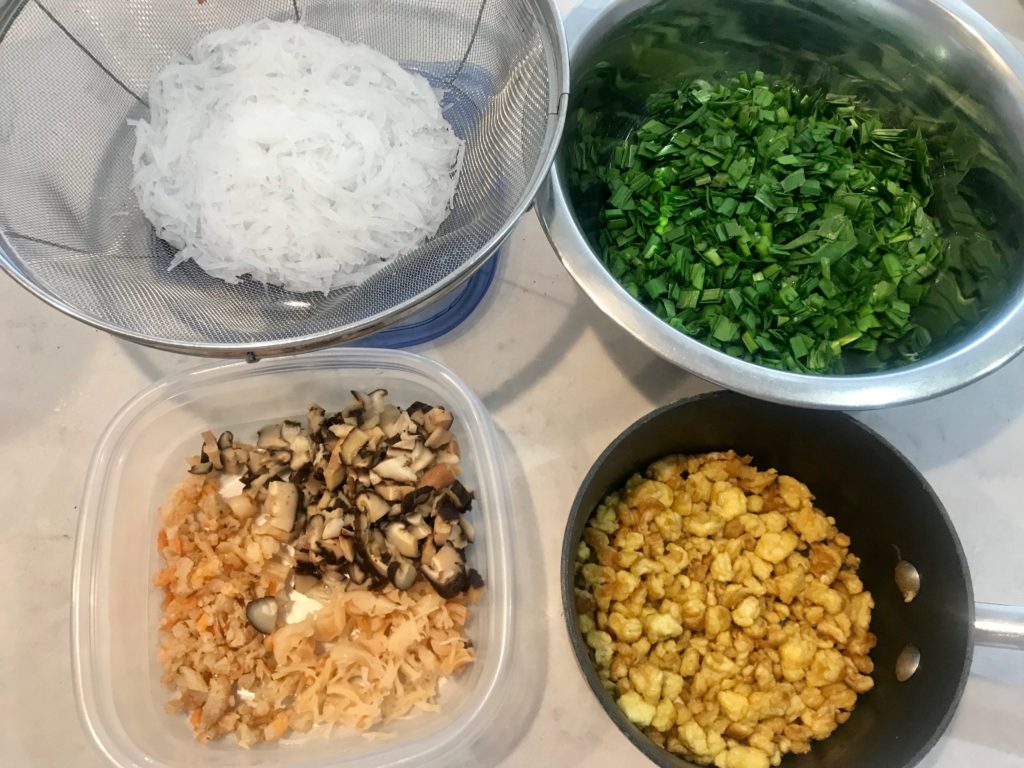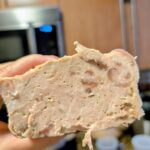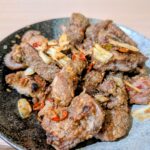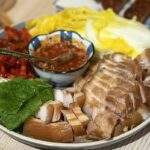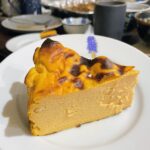Chive Pocket’s thin, crispy skin is able to hold rich variety of ingredients: chives, scrambled egg, vermicelli noodle, shiitake mushroom, dried shrimps and dried scallops. 宰相肚裏能撐船? Besides Chive Pocket’s recipe, I also looked into the different ways (various water temperatures) to make dough and how they are used for 5 different ways to cook dough for Chinese cuisines.
The 5 different ways to cook dough in Chinese cuisines are:
- steam 蒸: steam dumpling, shrimp dumpling, shumai, soup buns, soup dumplings
- boil 煮: noodle, dumplings, wontons,
- pan-fry 煎: scallion pancakes
- deep-fry 炸: churros, youtiao 油條, sesame smiley 開口笑, fried wontons
- burn/bake 烙: chive pockets, shao bing 燒餅
Why we use water of different temperatures for different doughs? This is because flour has different water absorbance ability at different temperature, and it has different properties at different temperatures. According to this blog and heyBaker site, flour can absorb MUCH more hot water than cold water:
- dough with cold water is best for boiling to absorb water, or for deep frying, the only moist in dough will be forced out thus the product becomes crispy! Steaming, pan-frying or burning/baking would not be able to provide enough moist to the dough.
- flour is “burnt” after hot water and thus its property changes; after hot water, the dough is soft and moist, not suitable for deep-frying and might fall apart if boiling
| texture | reasoning | what for? | |
| cold | stretchy | not absorbing a lot of moist and be starchy, so need longer resting time | boiling: noodle, dumpling/wonton skin frying: (scallion) pancakes |
| hot+ cold | NOT stretchy, easily shape | dough first absorbs hot water to become soft and moist; cold water will help increase crispy texture overall texture will be soft and chewy, even after chilling, it will NOT be stiff or hard. | steam: steam dumpling, Shumai fry: chive pocket, pancakes burn/bake: shaobing |
| warm | in between stretchy & non-stretchy | omnipotent: pot stickers, steam dumplings, soup dumplings, pancakes | |
| HOT | NOT stretchy, easily shape; skin transparent | flour is burnt, starch completely absorbs water, so the dough is very soft and easily shaped; texture is chewier and color is transparent | steam: shrimp dumpling (used a lot in Cantonese dim sum) NO stir frying |
QUICK TAKEAWAYS
- add some oil to dough first might yield more soft, smooth dough
- flour : water ratio is 2:1, could either use all HOT water or use 1/2 hot water + 1/2 cold water
- flour : chive ratio is 1:1
- besides chives, scrambled egg and vermicelli noodles, can also add shiitake mushroom slices, dried shrimps, dried scallops, etc.
- coating filling mixture first with sesame oil to prevent water coming out of chives
- DO NOT over-fill the pockets!!
RECIPE
Portions: 2
- 150g All Purpose flour
- 75g water in total:
- 38g hot water
- 37g cold water
- 150g chives
- 2 eggs
- 1 bunch vermicelli noodle
- optional ingredients for DELUXE ver.:
- few shiitake mushrooms
- dried shrimp
- dried scallop
Step 1: in 150g All Purpose flour, first add 1-2tbsp oil first mix well; then add 38g hot water, mix well; finally add 37g cold water, knead to form dough. Rest for 20mins.
- might need to add more water, dependent on room temperature, flour brand, origin, etc.
Step 2: on cutting board, stretch out the dough, roll back; knead till smooth.
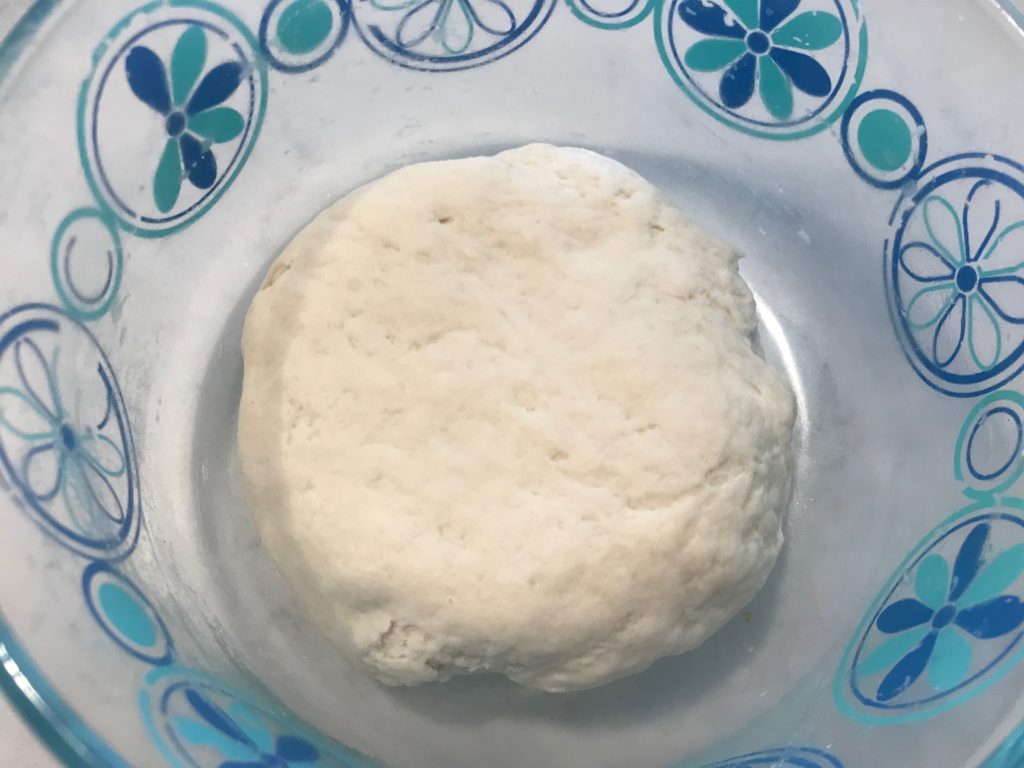
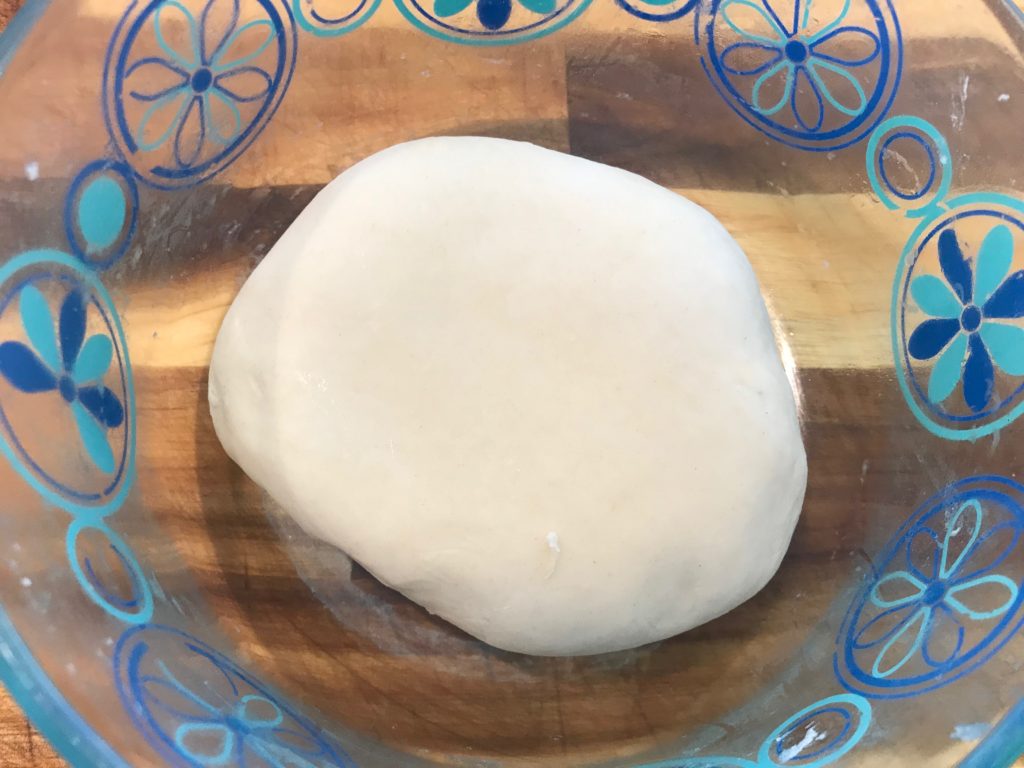
knead a few time and is smooth
Step 3: made the fillings:
- cut 150g chives into small pieces
- whisk 2 eggs in a bowl, add some salt; then stir fry in hot oil till they have golden skin 虎皮
- pour hot water over vermicelli noodles for 5mins till soft (half cooked), drain and cut into small pieces
- (optional) ahead of time, dip a few dried shiitake mushrooms, dried shrimps and dried scallops in water till softened; slice into small pieces
- mix all ingredients in a bowl, add:
- (FIRST) 1-2tbsp sesame oil 香油 (coating all chives with oil and preventing water from chives coming out)
- 1tbsp salt
- 1-2tsp five/thirteen spice powder 五香粉, 十三香
- 1tsp white pepper powder 白胡椒粉
- 1tbsp oyster sauce 耗油
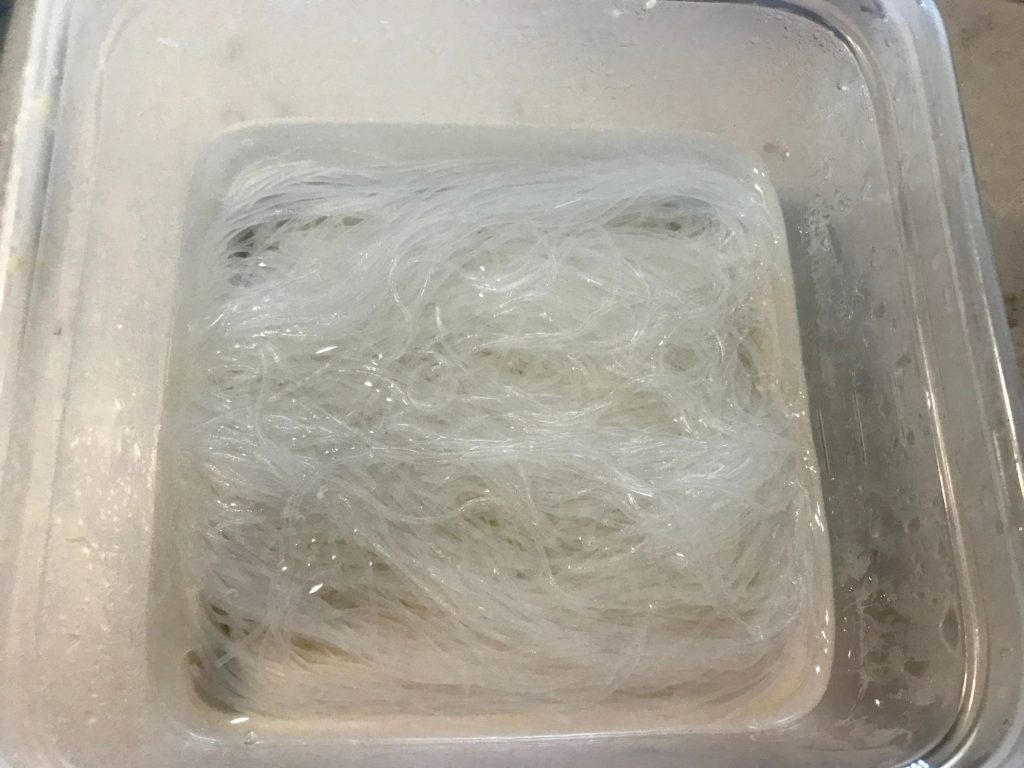
vermicelli in hot water for 5mins 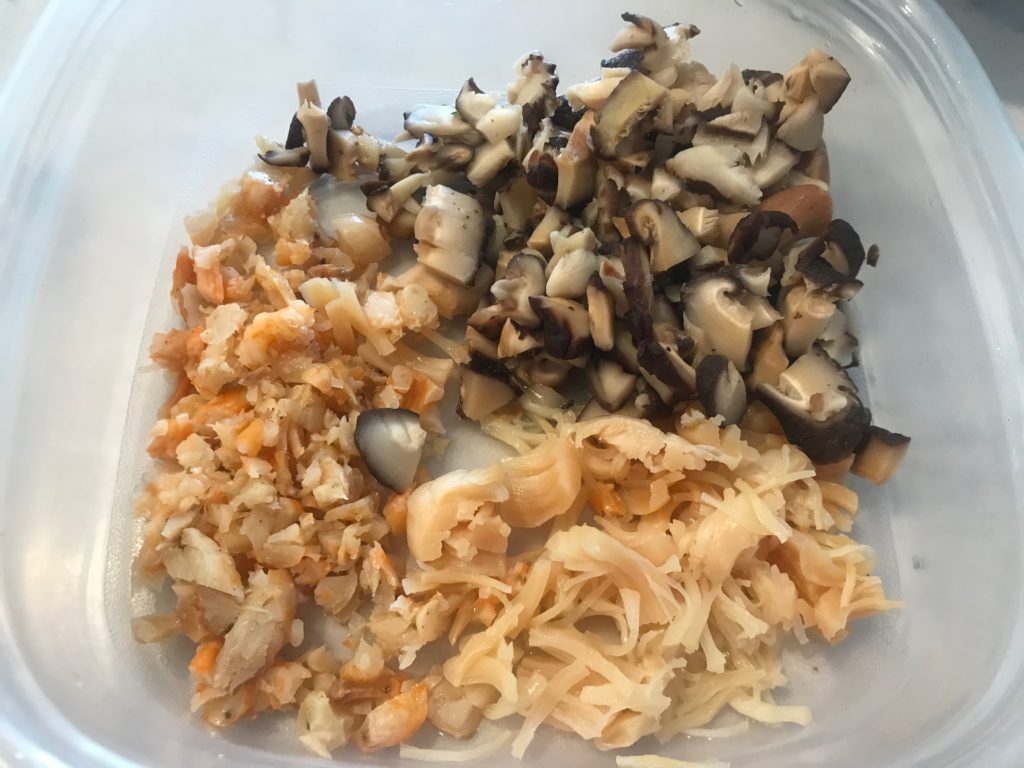
DELUXE v. 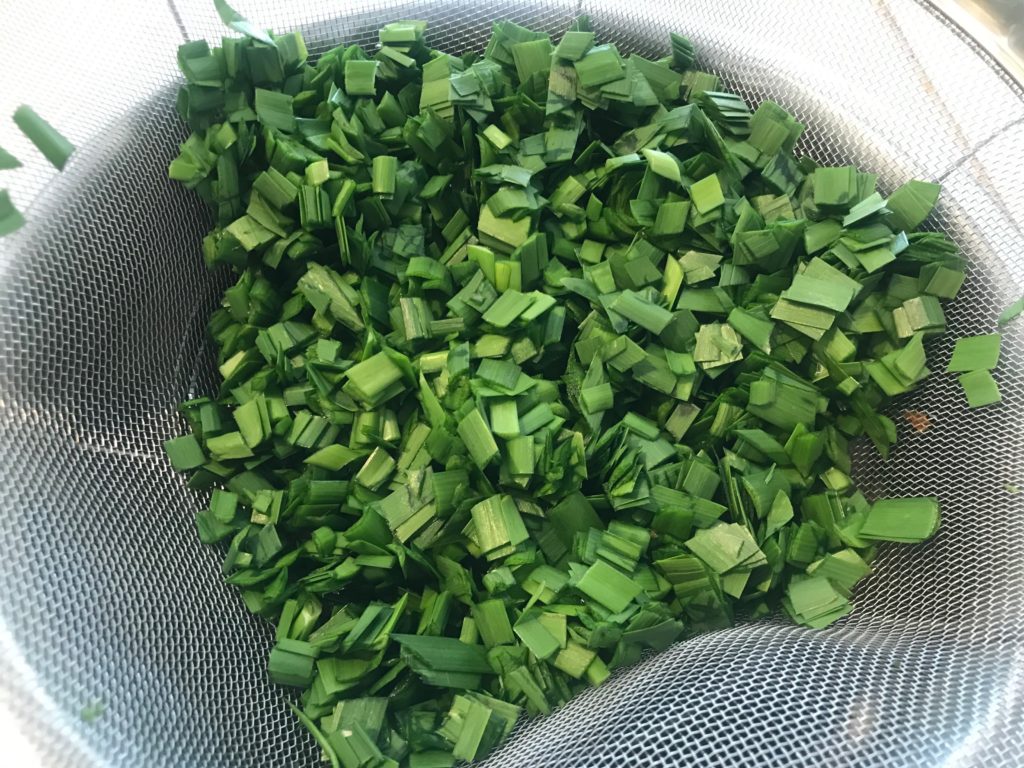
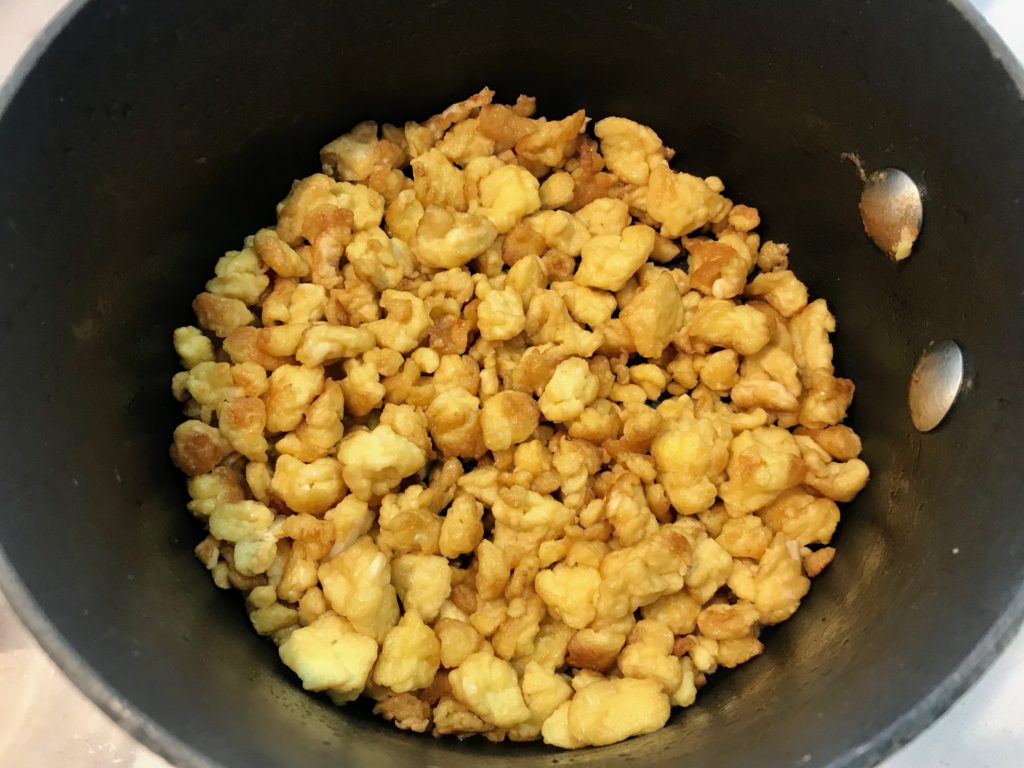
stir fry till golden skin 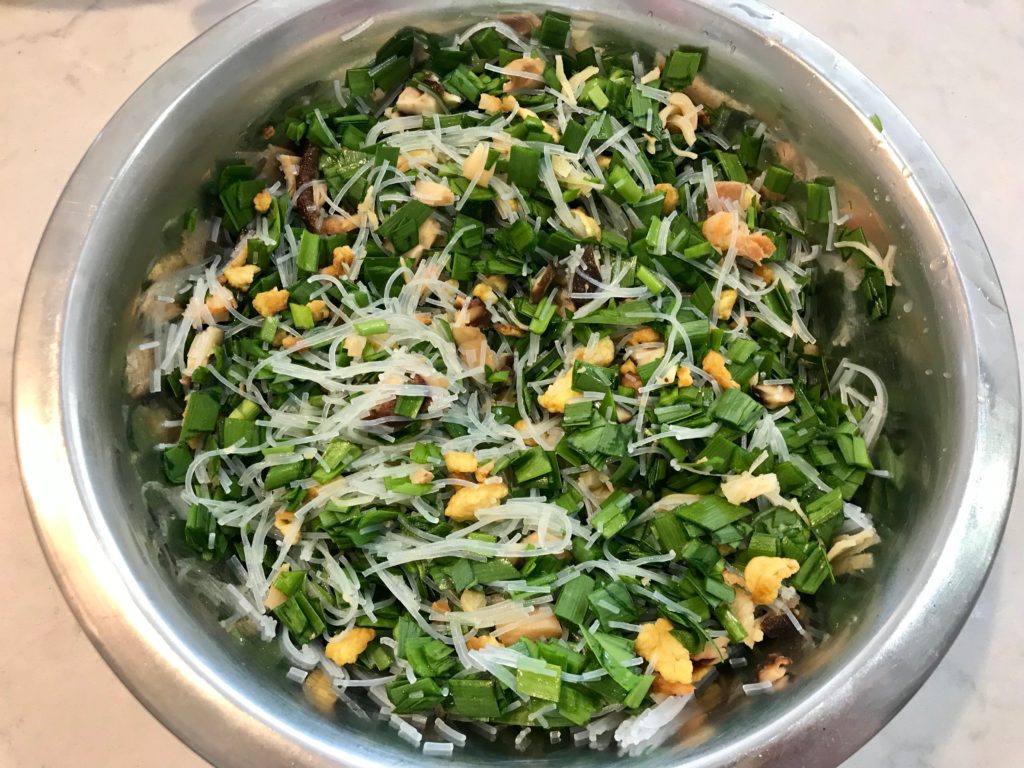
assemble 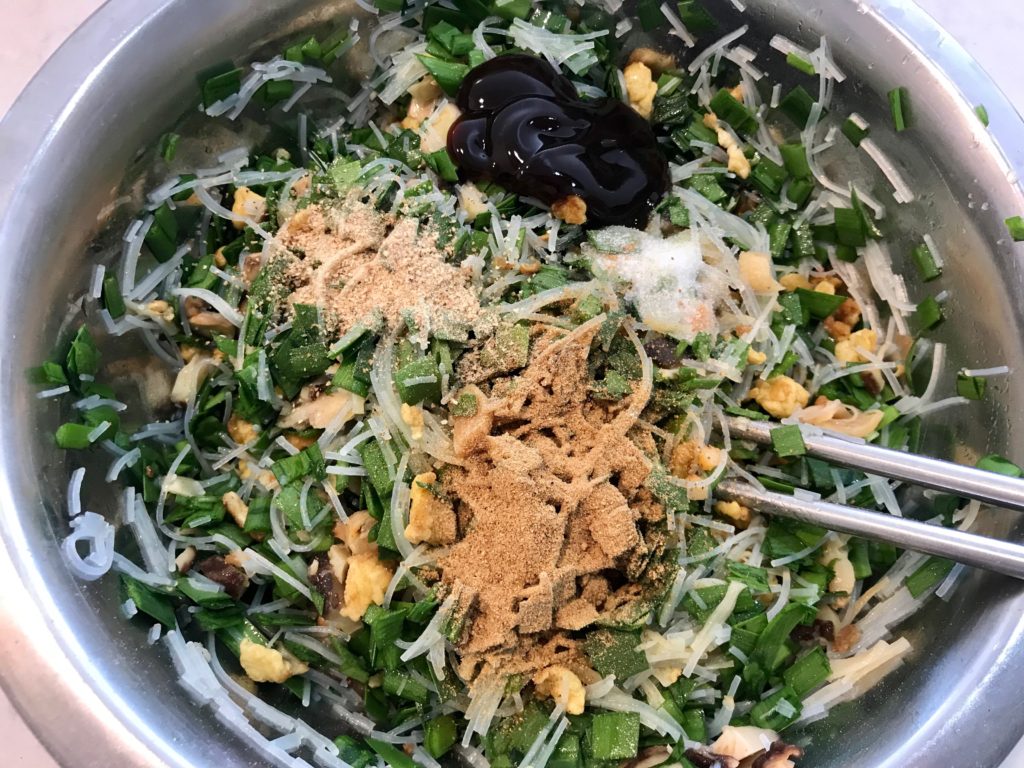
add spices 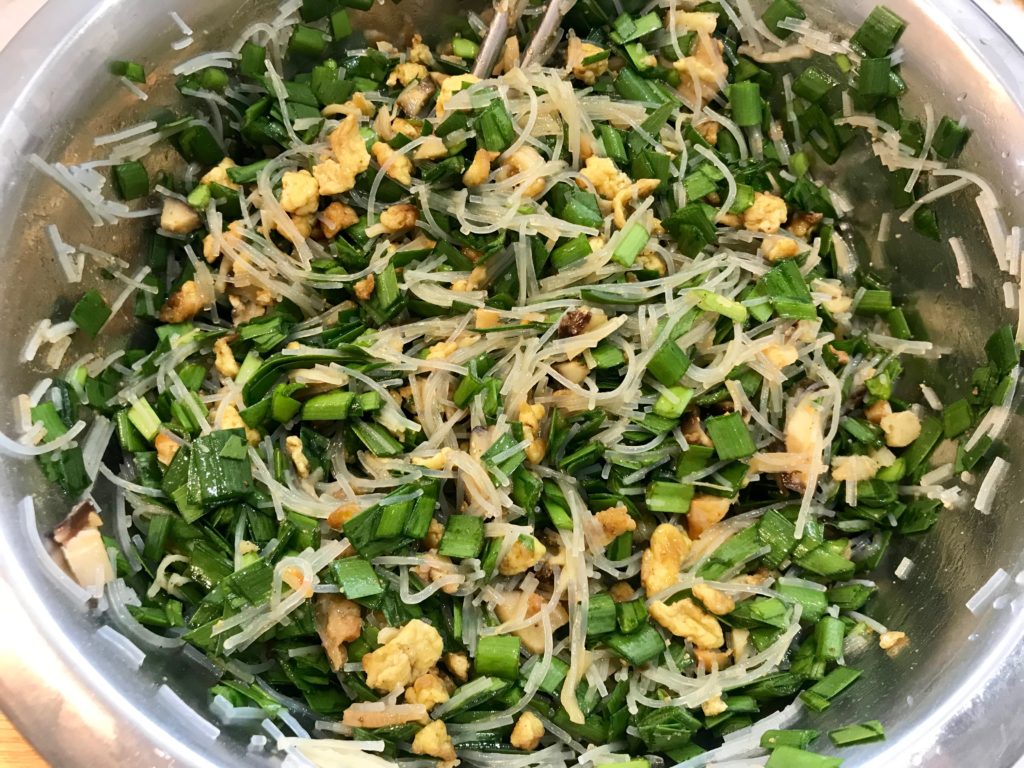
mix well
Step 4: divide dough into 4-6 pieces, can adjust dough size to how large you want the chive pockets to be
Step 5: roll dough into circular, very thin sheet
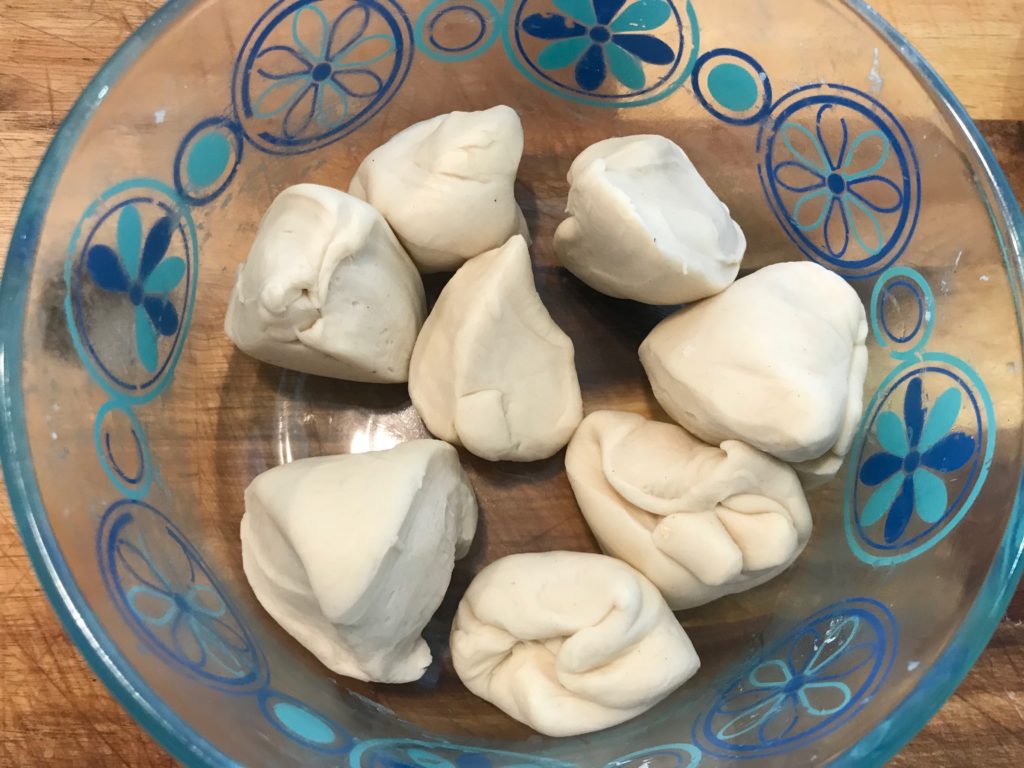
divide 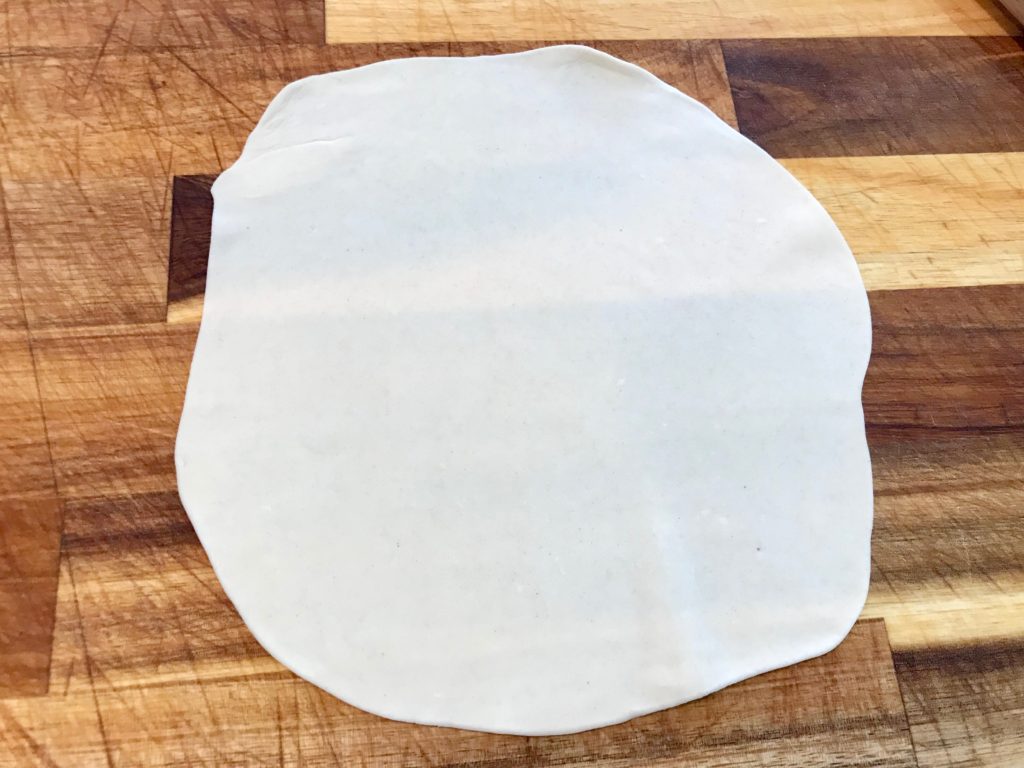
can see through the skin 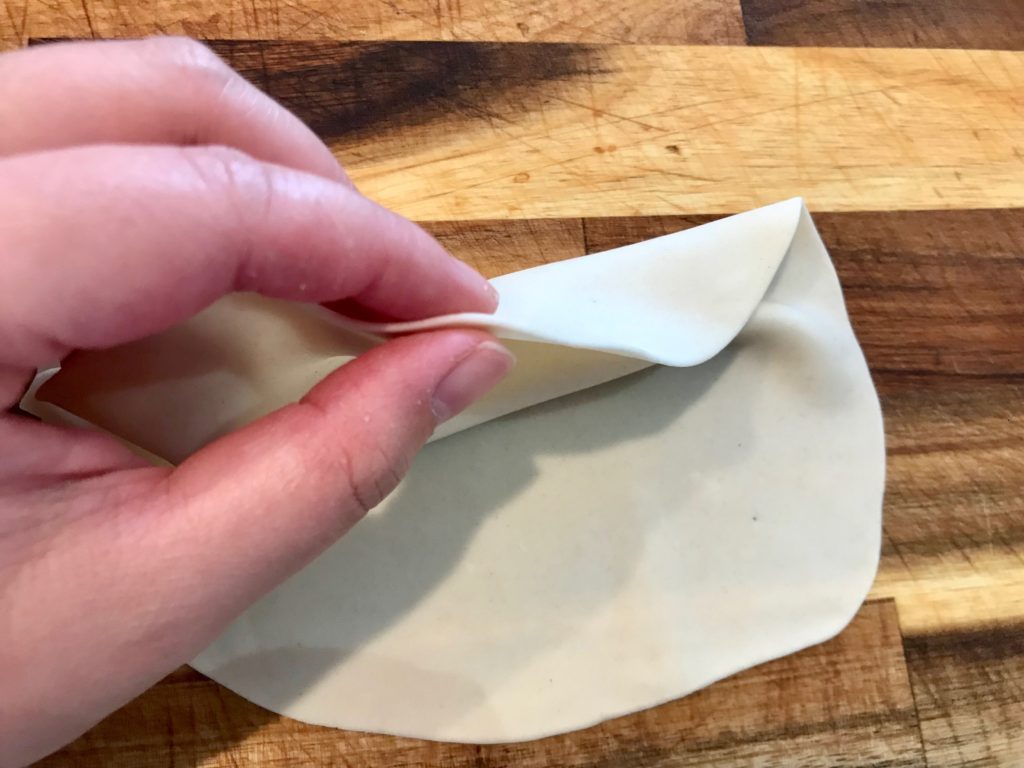
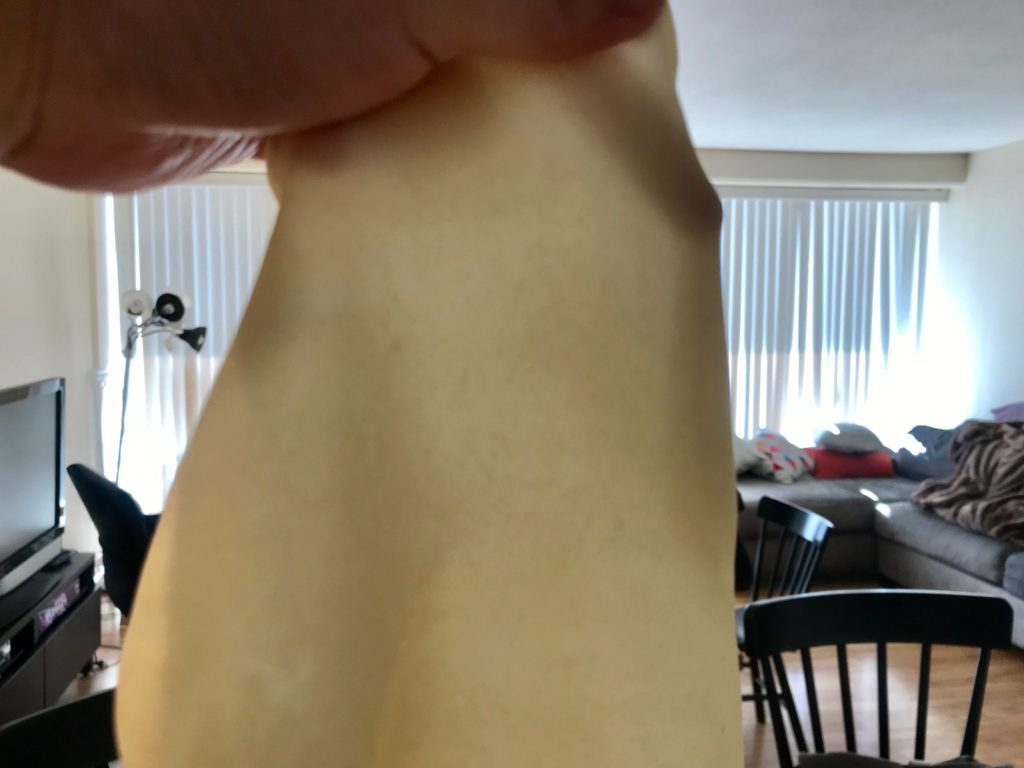
Step 6: put ingredients on half of the sheet, fold the other half over; press down on the edge first and use your thumb to fold skirt pattern on the edge, for pretty look and for sealing~
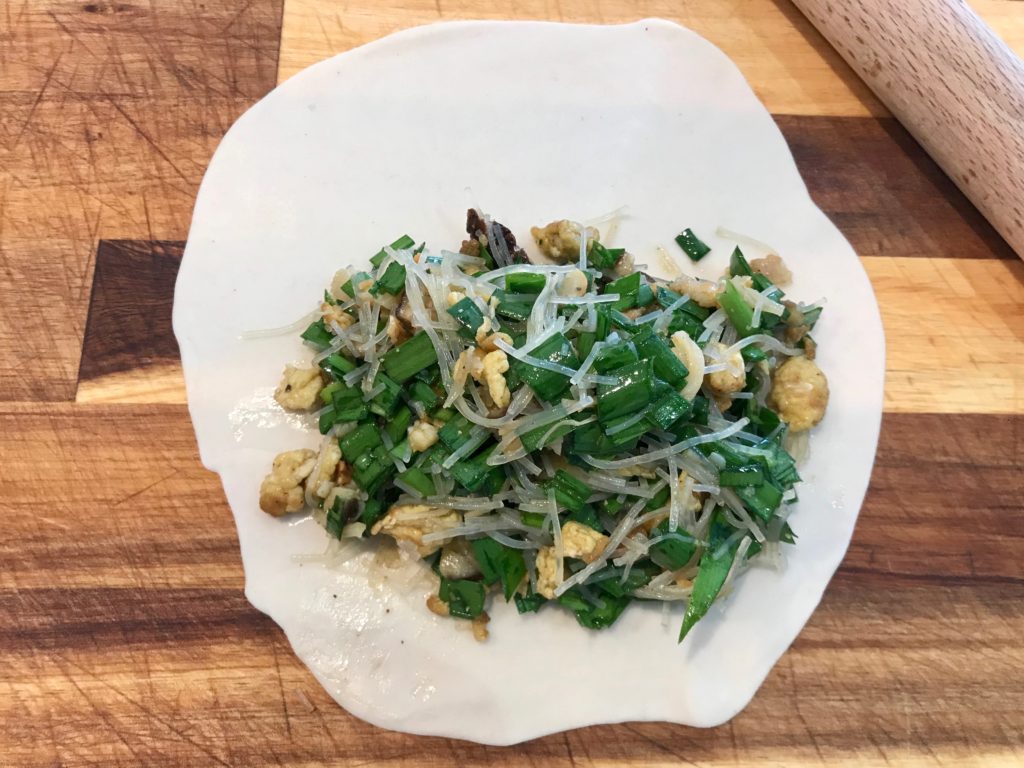
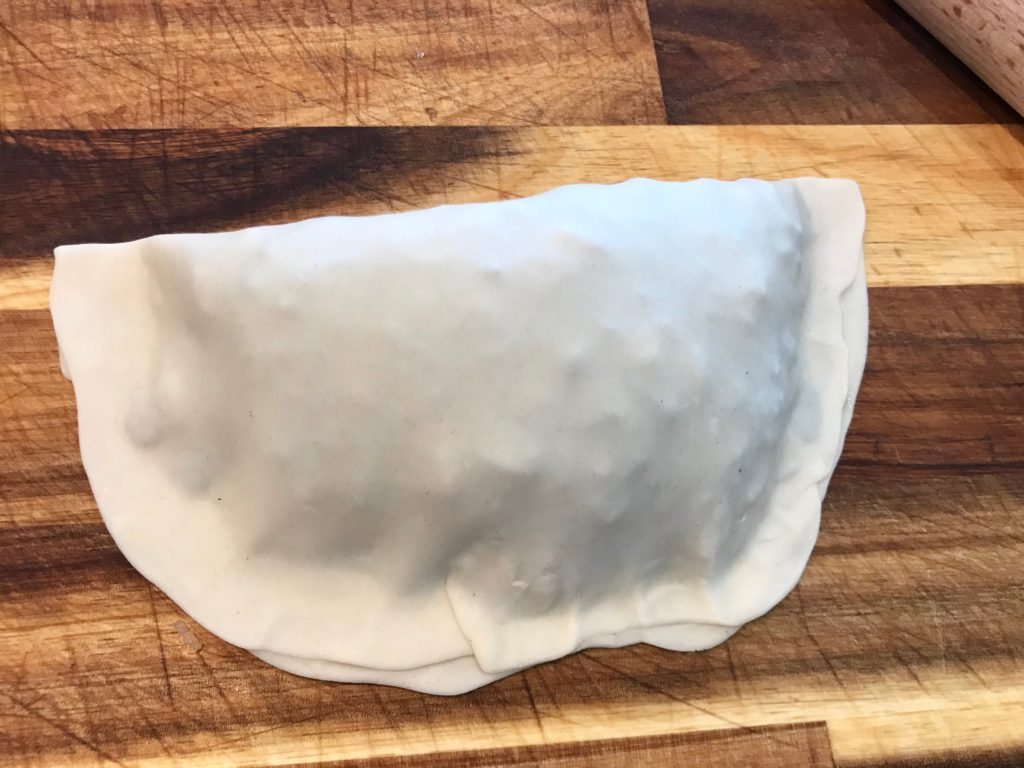
press down on edge 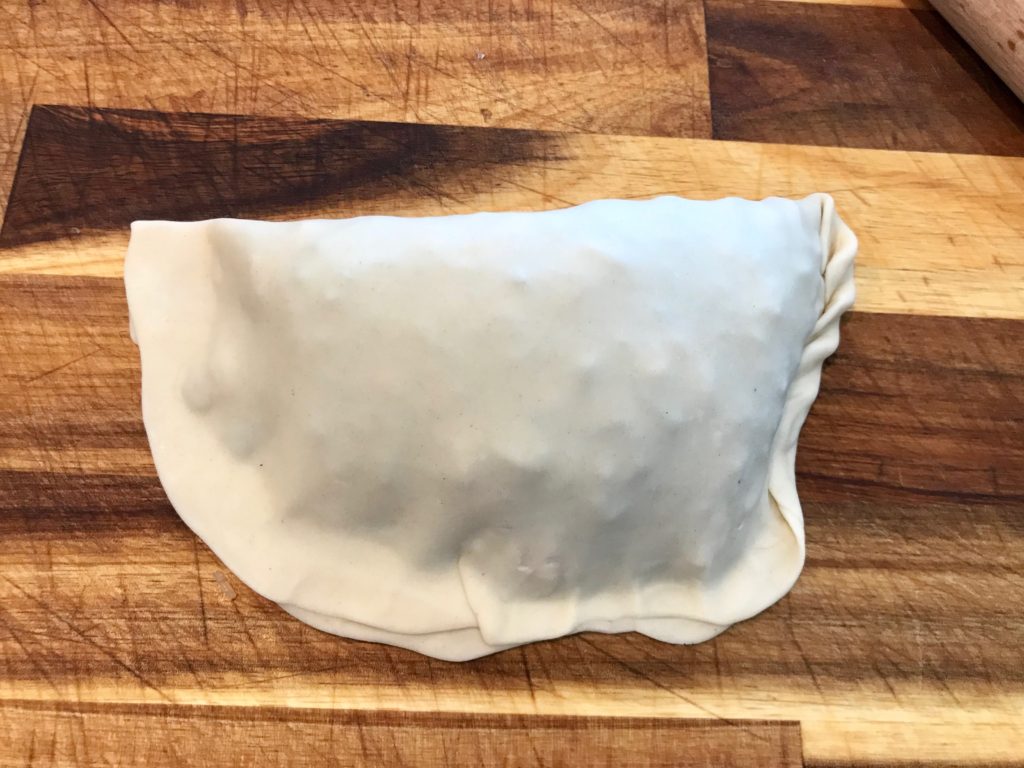
fold pattern from one end 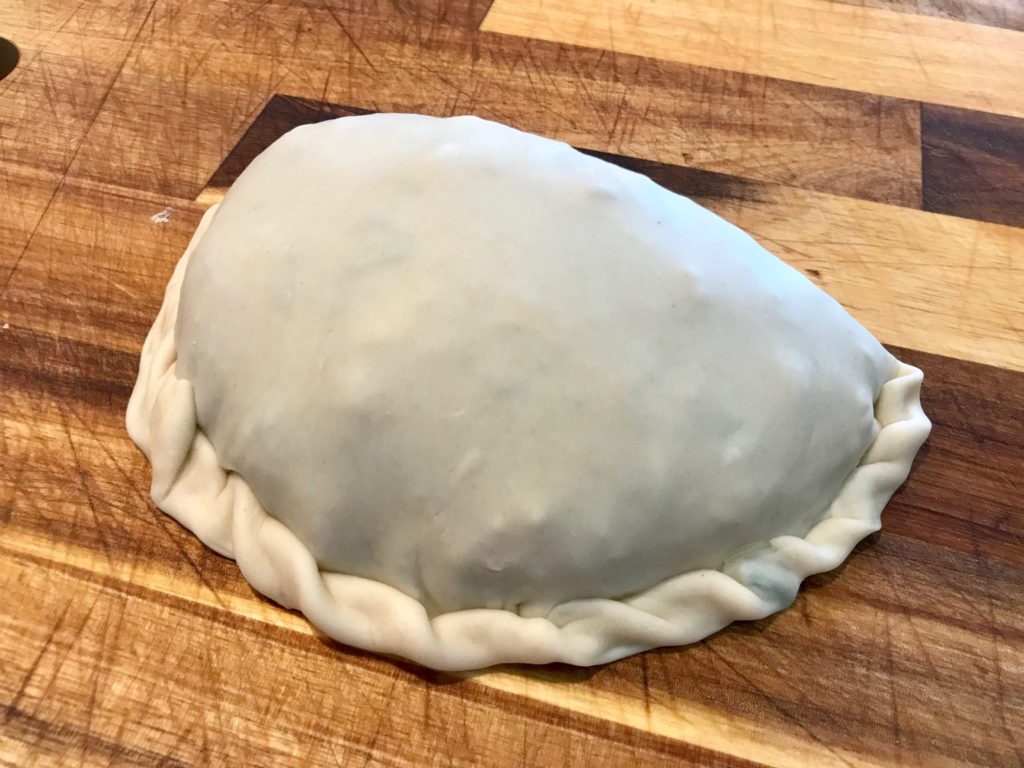
Step 7: over low heat, add oil and place chive pockets on top; brush oil on both sides and patiently fry till both sides are golden. Can let chive pocket stand to fry the bottom.
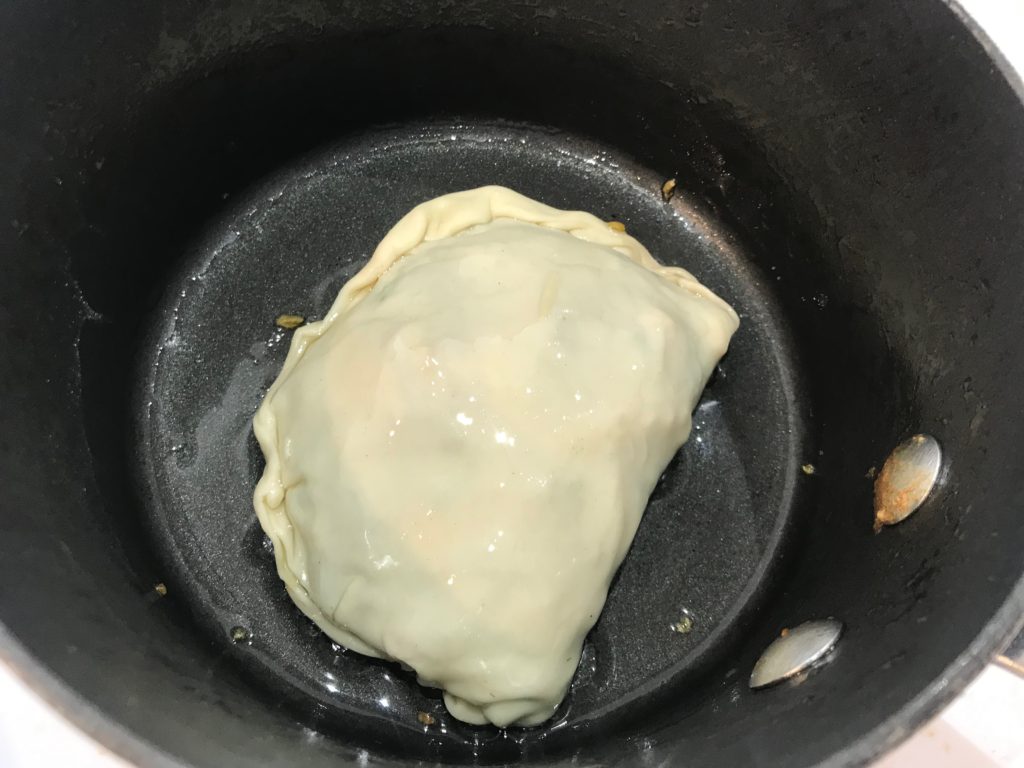
low heat 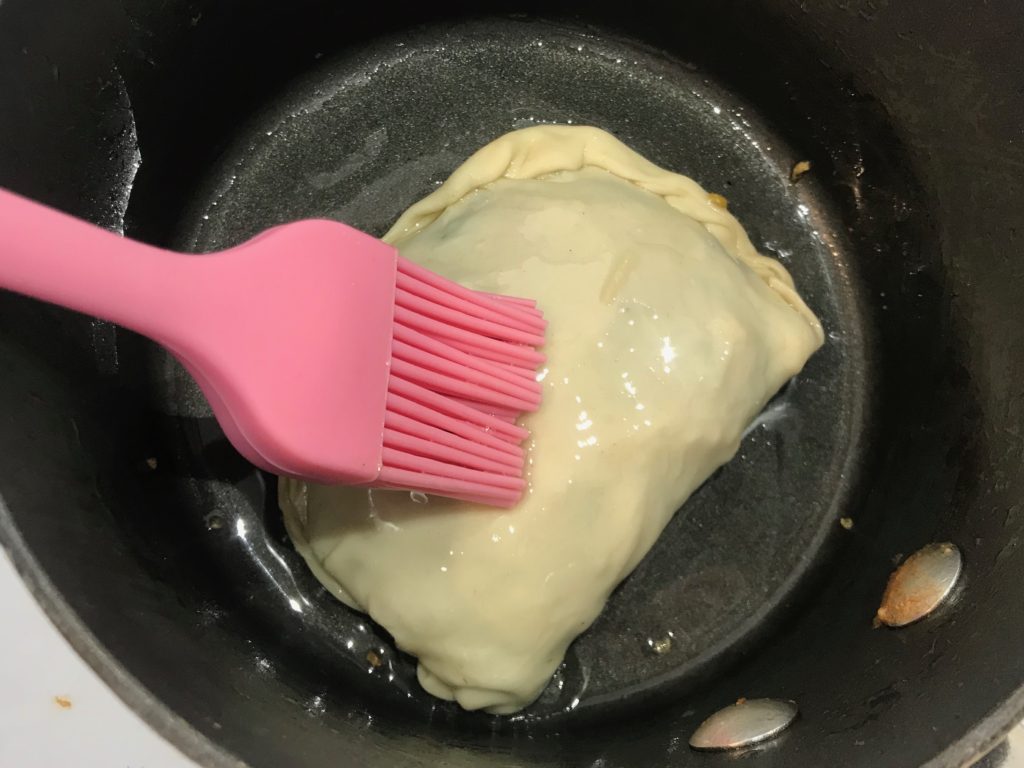
brush with oil 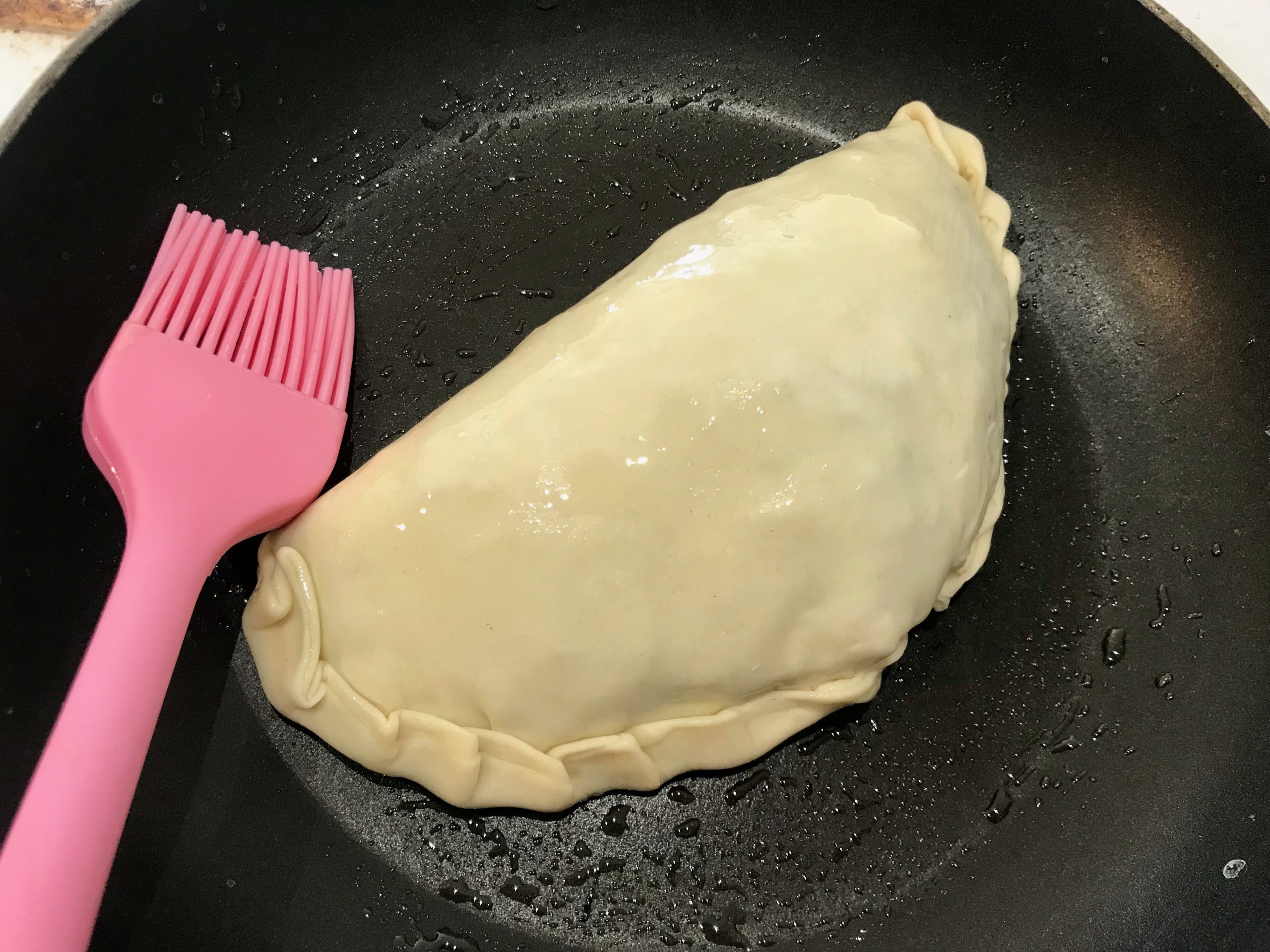
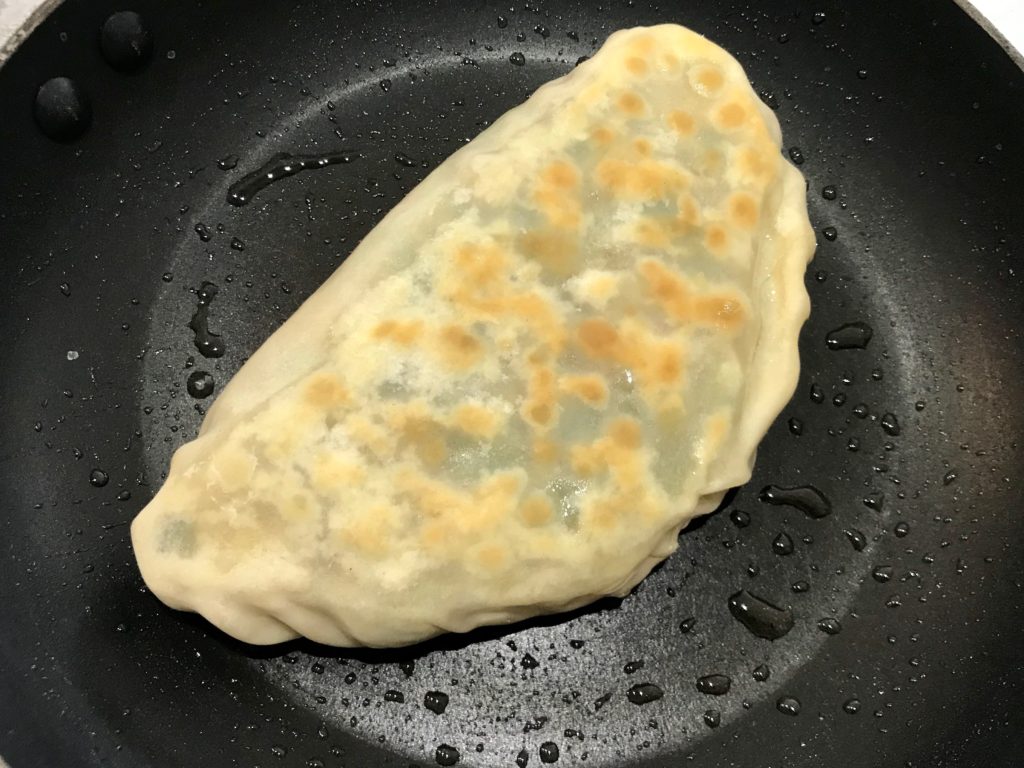
fry till golden and crispy 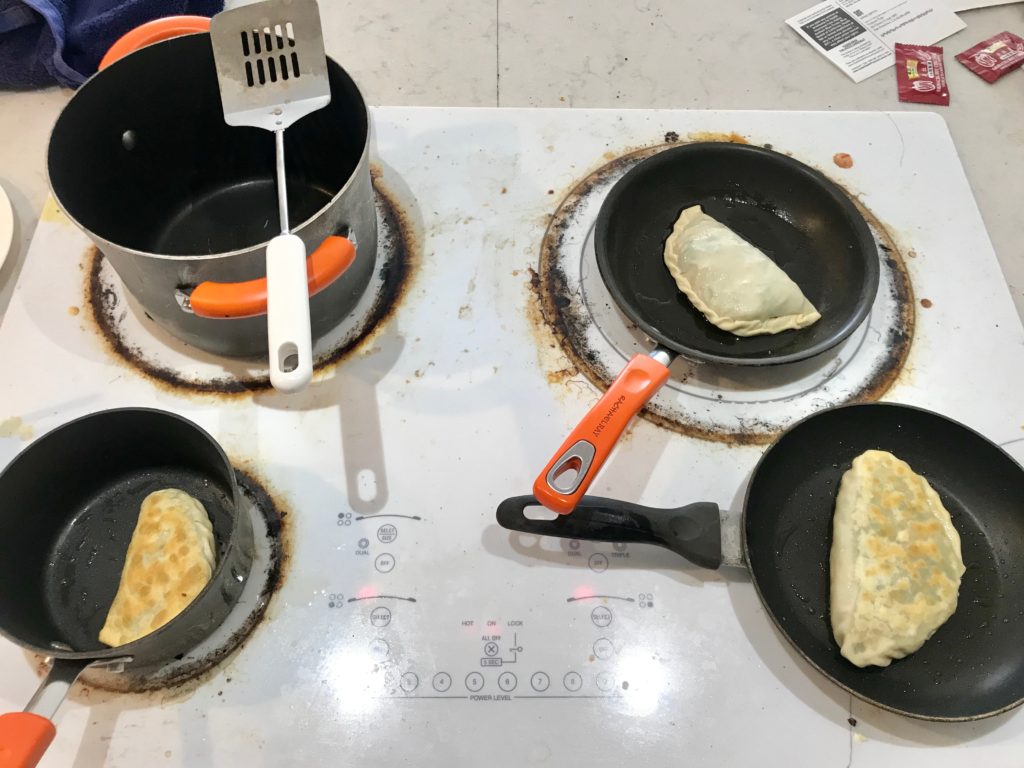
multi-pan-frying!! 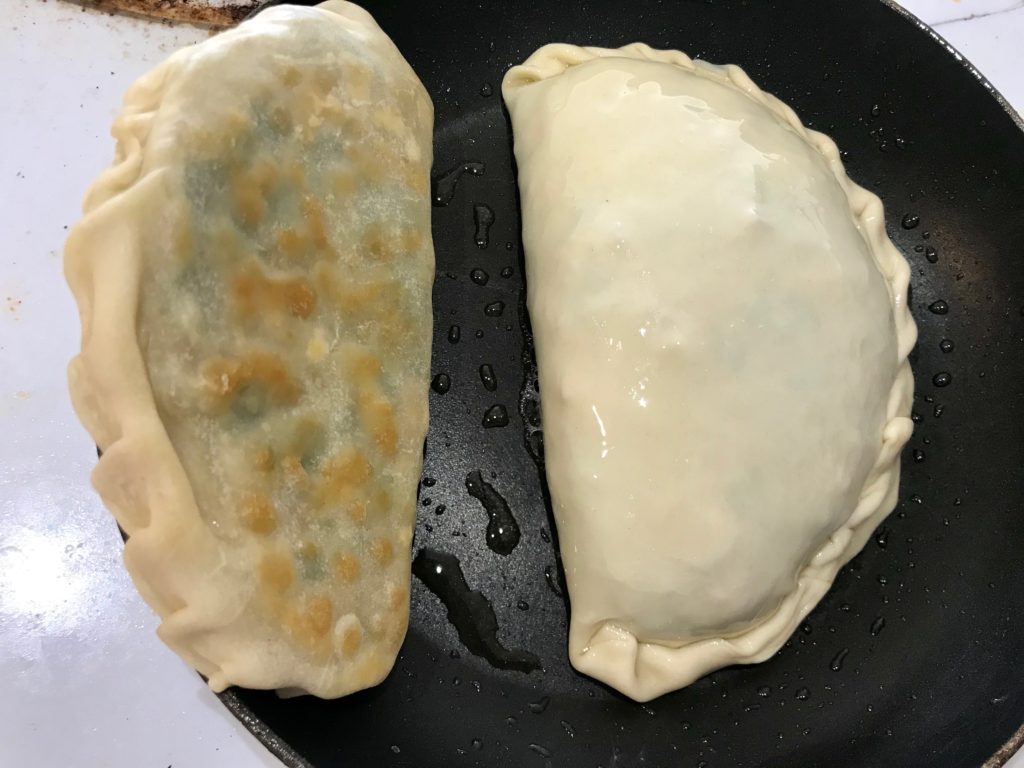
make them stand to fry the bottom
READY TO SERVE!
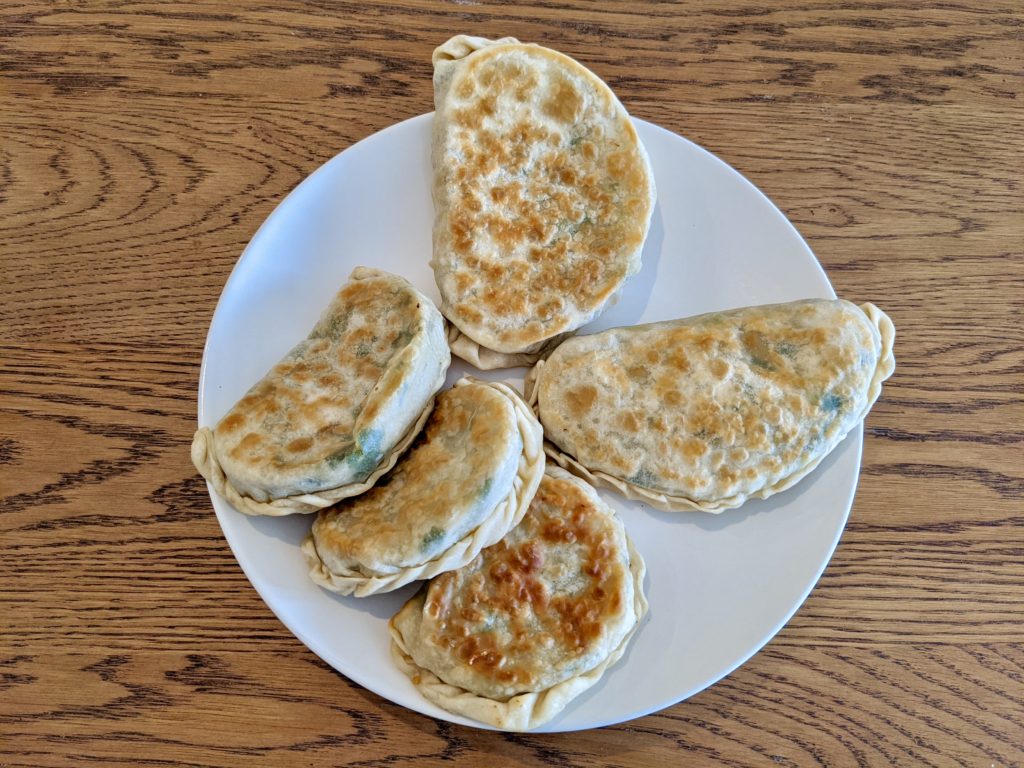
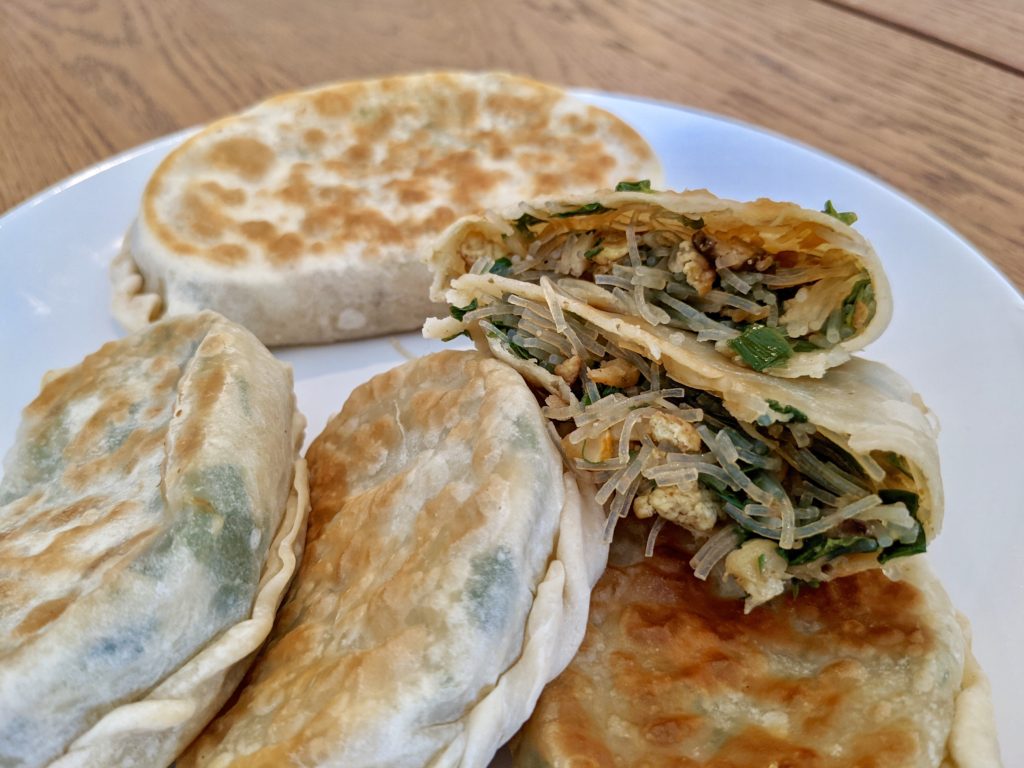
DELUXE fillings falling out! 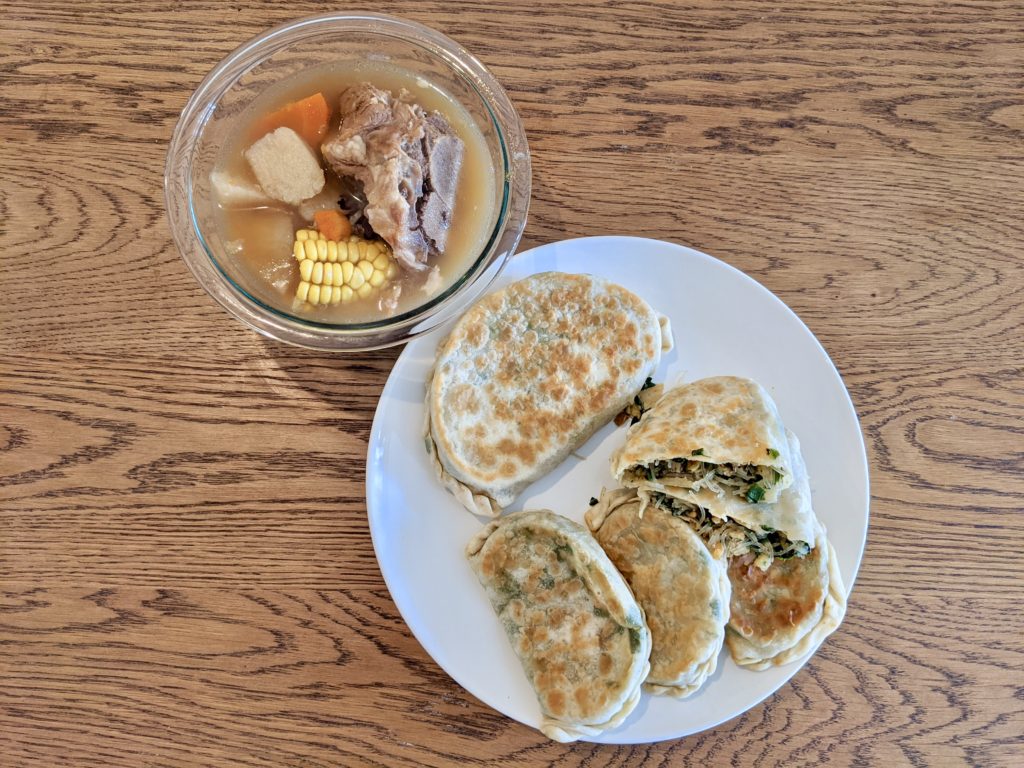
enjoy with soupy dish like bone soup!
RESOURCES
Different doughs’ water temperature and usage
Other food blogs explaining dough differences:

